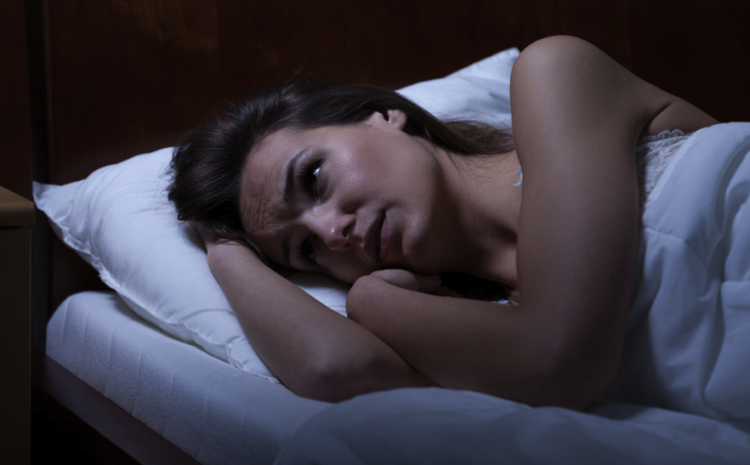
Allergies can be more than just a nuisance during the day. They can also disrupt our sleep and leave us feeling tired and groggy. If you’ve ever experienced nasal congestion, sneezing fits or itchy eyes at night, you may have already noticed the impact allergies can have on your sleep quality. In this blog post, Mission Viejo allergist Dr. Tyler Basen will explore the link between allergies and sleep issues. He will uncover the underlying causes, and provide practical solutions to help you achieve the restful sleep you truly deserve at night.
The Allergy-Sleep Connection
Allergies and sleep issues often go hand in hand, creating a vicious cycle that can leave sufferers feeling perpetually exhausted. While allergies are typically associated with daytime symptoms, such as congestion and watery eyes, their effects can extend far into the night. Allergens like pollen, dust mites and pet dander can trigger an array of sleep-disturbing symptoms, making it difficult to fall asleep, stay asleep or achieve deep, restorative rest.
Understanding Allergic Rhinitis
One of the most common culprits behind sleep disturbances caused by allergies is allergic rhinitis, commonly known as hay fever. This condition occurs when the immune system overreacts to harmless substances in the environment, leading to symptoms like sneezing, runny nose and nasal congestion. When these symptoms are present at night, they can disrupt sleep patterns and result in fragmented and unrefreshing sleep.
The Impact of Nasal Congestion on Sleep
Nasal congestion is a hallmark symptom of allergies, and its effect on sleep quality cannot be underestimated. When nasal passages are congested, breathing becomes more difficult, leading to snoring, mouth breathing and even temporary pauses in breathing, known as sleep apnea. These disruptions can significantly diminish the quality of sleep, leaving individuals feeling fatigued and restless upon waking.
The Role of Allergens in Sleep Disruptions
To truly understand the link between allergies and sleep disturbances, it is crucial to explore the role of common allergens. Allergens like pollen, dust mites, mold spores and pet dander can infiltrate our sleep environment, triggering allergic reactions and exacerbating sleep-related symptoms. Additionally, allergens can irritate the airways, leading to inflammation and further obstructing the smooth flow of air, resulting in disturbed sleep patterns.
Allergies and Sleep Disorders
Beyond mere sleep disruptions, allergies can also contribute to the development or exacerbation of sleep disorders. Conditions such as insomnia, restless leg syndrome (RLS), and obstructive sleep apnea (OSA) have been linked to allergies and can significantly impact overall sleep quality and daytime functioning. Identifying and addressing underlying allergies is crucial for managing these sleep disorders effectively.
Strategies for Allergy Management
While it may seem overwhelming to combat both allergies and sleep disturbances simultaneously, there are practical strategies that can help you regain control of your sleep and reduce allergy-related symptoms. From creating an allergen-free sleep environment to exploring medical interventions and lifestyle modifications, a multifaceted approach can significantly improve both sleep quality and overall well-being.
Creating an Allergen-Free Sleep Environment
Creating a sanctuary free from allergens is an essential step in minimizing sleep disruptions caused by allergies. Start by investing in allergen-resistant bedding and pillow covers, regularly washing sheets and blankets in hot water, and keeping the bedroom clean and dust-free. Additionally, using a HEPA air purifier and avoiding pets in the bedroom can further reduce exposure to allergens.
Medical Interventions for Allergies and Sleep Issues
For severe allergies or persistent sleep disturbances, seeking medical intervention may be necessary. Consultation with an allergist can help identify specific allergens through testing and develop a personalized treatment plan. Allergy medications, such as antihistamines and nasal corticosteroids, can alleviate symptoms and promote better sleep. In some cases, allergen immunotherapy, such as allergy shots or sublingual immunotherapy drops (SLIT), may be recommended for long-term relief.
Lifestyle Modifications for Better Sleep
In addition to environmental and medical interventions, adopting healthy sleep habits and lifestyle modifications can significantly improve sleep quality, especially for individuals with allergies. Establishing a consistent sleep routine, practicing relaxation techniques and optimizing bedroom conditions, such as maintaining a cool temperature and minimizing exposure to electronic devices before bed, can enhance sleep hygiene and facilitate better rest.
Conclusion
The connection between allergies and sleep disturbances is more profound than meets the eye. By understanding the underlying mechanisms and implementing effective strategies, you can reclaim restful nights and wake up feeling refreshed. Don’t let allergies dictate your sleep quality any longer. Take charge and embark on a journey toward better sleep and improved overall well-being.
If you have more questions regarding allergies and sleep issues, please do not hesitate to contact us. Pacific Allergy & Asthma would be more than happy to assist and answer any questions.




